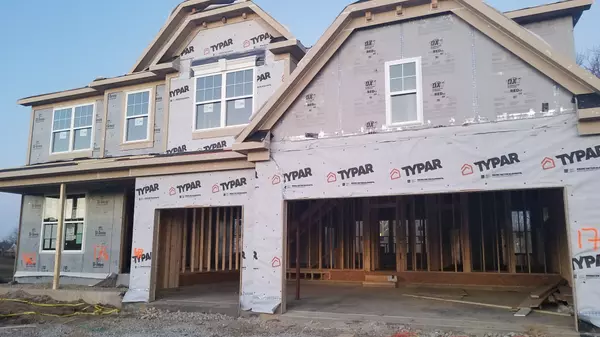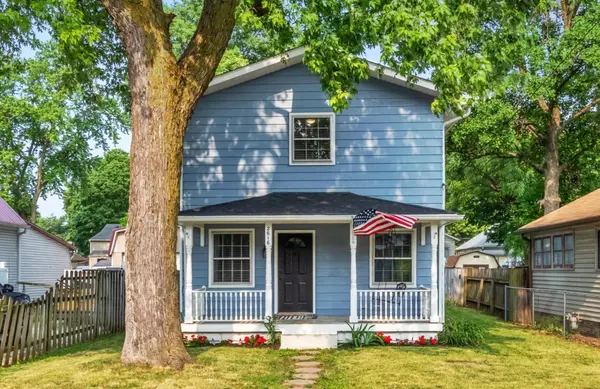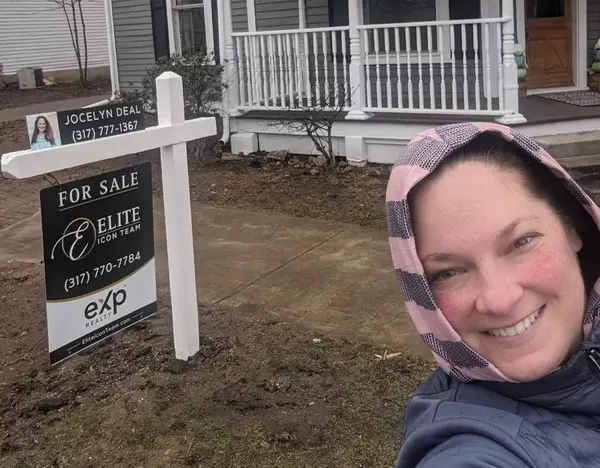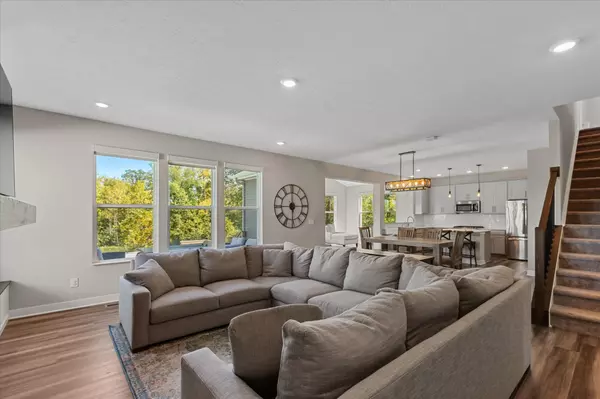
10 Secret Factors That Instantly Boost a Home's Resale Value
When it comes to selling a home, small, strategic improvements can make a big difference in how much a buyer is willing to pay. Some of these factors are well-known, while others are more subtle but highly effective. Understanding these hidden “boosters” can help you turn your property into a top-choice listing. Let's dive into these 10 lesser-known factors that can quickly increase your home's resale value. 1. Location, Location, Location – It’s Not All About the City Most buyers understand the value of a great location, but it’s not only about being near the city center. Proximity to quality amenities like parks, community centers, and good schools can significantly enhance property value. This is particularly true for families who prioritize neighborhood quality and safety over pure convenience. Hidden Benefits of Being Near Parks and Trails Properties near parks or walking trails provide residents with quick access to outdoor activities. For families, retirees, and health-conscious buyers, this proximity is a major selling point, as it offers lifestyle perks that aren't always immediately obvious but add substantial appeal. Why School Districts and Community Centers Matter Homes located in desirable school districts are always in demand, as parents are willing to pay a premium for quality education. Community centers add to this appeal, providing social opportunities and classes that enhance family life and community bonds. 2. The First Impression – Curb Appeal Makes a Lasting Impact The first thing buyers notice is the outside of the home. Investing in landscaping, a fresh coat of paint, and maintaining a clean and attractive entryway instantly makes a house more inviting. This “curb appeal” is crucial because it shapes a buyer’s initial impression. Landscaping Tips for High Resale Value Simple landscaping improvements like trimming hedges, adding colorful plants, and maintaining a lush lawn can improve curb appeal dramatically. Native plants are a great choice as they’re low maintenance and appealing to environmentally conscious buyers. Enhancing Entryways and Driveways A clean driveway and a well-designed entryway create a welcoming atmosphere. Adding pavers, repainting the front door, and installing new hardware can give the entrance an updated look that appeals to prospective buyers. 3. Smart Home Features – Tech Appeal for Modern Buyers Buyers today value homes equipped with smart technology. Smart thermostats, security systems, and even automated lighting are highly attractive and can add perceived value without major remodeling. Security Systems and Thermostats Smart security systems and programmable thermostats improve safety and reduce energy bills, two features that appeal to modern buyers. Homes with these amenities offer buyers peace of mind and convenience, making them easier to sell. Automated Lighting and Energy Efficiency Automated lighting, combined with energy-efficient bulbs, adds convenience while reducing utility costs. This combination of high-tech and eco-friendly features helps your home stand out in the real estate market. 4. Updated Kitchens and Bathrooms – The Key Selling Points Kitchens and bathrooms are often the main decision-makers for buyers. Modern upgrades to these rooms can yield substantial returns and increase buyer interest. Countertops, Backsplashes, and Appliances Investing in high-quality countertops, stylish backsplashes, and new appliances can transform the kitchen into a major selling point. Opt for neutral tones with a few modern accents to appeal to a broad audience. Creating Spa-Like Bathroom Retreats Bathroom renovations don't have to be extensive to be effective. Adding spa-like features like rainfall showerheads, modern vanities, and frameless glass doors can elevate a bathroom’s appeal and create a luxurious feel. 5. Energy Efficiency Upgrades – The Hidden Resale Driver Energy-efficient homes are becoming more popular, and adding green upgrades is a smart way to boost value. Solar panels, improved insulation, and energy-efficient windows all attract cost-conscious buyers. The Role of Solar Panels and Insulation Solar panels are an investment that can pay for itself over time, and buyers love the reduced energy bills. High-quality insulation also helps regulate temperature, making the home more comfortable and energy-efficient. Windows, Doors, and Roofing: Key Elements Energy-efficient windows, doors, and a quality roof reduce heating and cooling costs, which is a major selling point. These upgrades often come with tax incentives, making them even more appealing. Unlock Your Home's Hidden Value! Discover the changes that can bring top dollar when selling your home. Our expert team knows exactly what buyers are looking for and will guide you through impactful updates and strategies. Ready to get started? Schedule My Free Consultation 6. Open Floor Plans – Space that Speaks Open floor plans create a spacious, flowing layout that many buyers find attractive. These layouts provide flexibility and are ideal for modern living, making homes feel larger and more adaptable. Creating Flow in a Home An open layout improves the flow from one room to another, providing a seamless space for entertaining. It’s also ideal for families who need flexible living spaces that can adapt to their needs over time. Natural Light and Visual Appeal Open floor plans allow for more natural light, which is always a selling point. Bright, well-lit spaces not only look larger but also create a warm and inviting atmosphere that appeals to buyers. 7. Fresh Paint and Neutral Colors – The Instant Transformation Paint is one of the easiest and most effective upgrades for resale value. Opt for neutral colors, as these appeal to a wider range of buyers and make rooms look clean, fresh, and ready for their new occupants. Why Neutral Colors Work Best Neutral colors like soft grays, beiges, and whites create a blank canvas that allows buyers to envision themselves in the space. These tones also work well with a variety of furniture styles. Adding Accent Walls and Textures Accent walls or textured finishes add character without overwhelming the space. These subtle touches can make the home feel unique and stylish while keeping the overall decor adaptable for buyers. 8. Basement and Attic Conversions – Extra Space with Big Value Converting basements and attics into usable spaces is an effective way to add value. These areas can be transformed into home offices, guest rooms, or recreational spaces, catering to a range of buyer needs. Turning Basements into Livable Areas Finishing a basement can add a significant amount of square footage and create valuable spaces like family rooms, gyms, or even rental units, depending on the layout and buyer interest. Adding Attic Bedrooms or Offices Converting an attic into a bedroom or office adds both value and function. It’s a practical option for families needing extra space without altering the home’s overall structure. 9. Quality Flooring – Beyond Just Looks Flooring is a major component of any home. While hardwood and tile are often preferred, carpet in certain areas, such as bedrooms, can add a cozy feel that some people love. Hardwood Floors and Tile as Top Choices Hardwood floors are popular for their durability and timeless appeal, and they are a favorite among buyers. Tile flooring is also a practical and stylish choice, especially for kitchens and bathrooms, where water resistance is essential. Carpet and Area Rugs for Specific Spaces While hardwood is generally preferred, carpet can be an excellent choice in bedrooms or living rooms for added warmth and comfort. Area rugs on hardwood floors can also add style and create a cozy feel, allowing buyers to enjoy the best of both worlds. 10. Storage Space – The Overlooked Value Booster Storage space is a surprisingly important factor for buyers. Having ample closets, especially walk-ins, and built-in shelving adds immense value, as it makes the home feel more organized and spacious. Walk-In Closets and Built-In Shelving Walk-in closets are a premium feature that provides significant value. Built-in shelving in living areas, kitchens, or garages offers a practical way to maximize storage without taking up additional space, adding functionality to any room. Garage Storage and Organization Garages with organized storage solutions are highly appealing. Simple shelving, cabinetry, or pegboards for tools help keep things tidy and showcase the garage as an extension of the home’s livable space. Small Upgrades, Big Returns Boosting a home’s resale value doesn’t always require large-scale renovations. Strategic upgrades, like modernizing kitchens, improving energy efficiency, or enhancing curb appeal, can increase a property’s desirability and selling price. Whether preparing to sell soon or planning future investments, these factors are proven ways to add both appeal and value to your home. FAQs on Boosting Your Home's Resale Value What’s the best place to start when upgrading a home for resale? - Focus on curb appeal and visible updates, like painting and landscaping, as they create the first impression. These are generally cost-effective and impactful. How much does an open floor plan impact home value? - Open floor plans are highly sought after and can increase appeal by making the home feel larger and more inviting. They tend to attract a broader range of buyers. Is it worth investing in smart home technology? - Yes, adding smart features like security systems or smart thermostats can be a relatively affordable upgrade with a high perceived value, especially for tech-savvy buyers. Are energy-efficient upgrades really effective for resale value? - Absolutely. Buyers today are increasingly eco-conscious, and energy-efficient homes often sell faster and for higher prices, as they promise long-term savings on utility bills. What colors are best for repainting a home before selling? - Neutral tones, such as soft grays, beiges, and whites, are ideal for resale as they appeal to a wide range of buyers and make rooms appear clean and move-in ready. Ready to Maximize Your Home's Value? Don’t miss out on your home’s full potential! Whether it’s smart upgrades, design insights, or strategic staging, our team is here to help. Schedule a consultation with us today and let’s make your home shine in the market. Schedule My Free Consultation
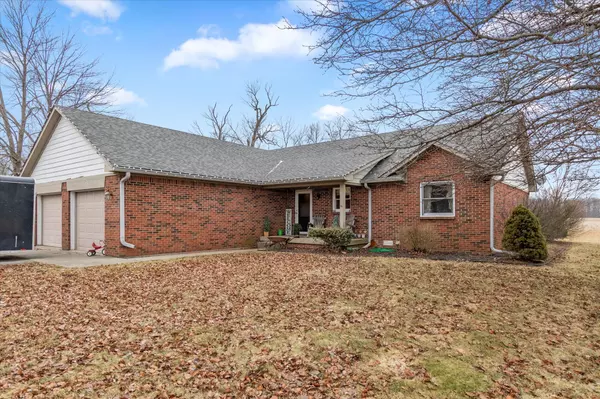
What is Title Insurance?
Title insurance is an essential component of any real estate transaction, offering protection to both buyers and sellers against potential legal issues that may arise due to problems with the property's title. By providing a thorough examination of the property's history and guaranteeing a clear title, title insurance plays a vital role in ensuring a smooth and secure real estate transaction. In this article, we will delve deeper into the concept of title insurance, its significance for buyers, sellers, and lenders, and discuss some key terms associated with this crucial aspect of real estate. Clearing the cloud: Understanding the impact of cloudy title in real estate transactions Title: Clearing the Cloud: Understanding the Impact of Cloudy Title in Real Estate Transactions In the realm of real estate transactions, the concept of "cloudy title" can pose significant challenges and risks for both buyers and sellers. A cloudy title refers to any issue or defect in the ownership history of a property that could potentially hinder the transfer of clear ownership rights. From unresolved liens and encroachments to undisclosed easements and boundary disputes, these title defects can complicate the sale process and even lead to legal disputes down the line. The adverse effects of cloudy title Cloudy title can have various adverse effects on a real estate transaction: Delay or denial of financing: Lenders typically require clear title before approving a mortgage loan. If title issues arise during the due diligence process, lenders may hesitate to provide financing, delaying or even jeopardizing the transaction. Legal challenges: Title defects can result in legal disputes between parties involved in the transaction, including buyers, sellers, lenders, and previous property owners. These disputes can lead to costly litigation and potentially prevent the sale from proceeding. Unforeseen expenses: Resolving title issues often requires time-consuming and costly legal procedures, such as title searches, surveys, and corrective measures. Buyers may be required to bear these expenses, impacting their overall budget for the purchase. Loss of investment: In severe cases, unresolved title defects may render the property unsellable or significantly diminish its value. Buyers may ultimately decide to walk away from the transaction, resulting in financial losses for sellers and missed opportunities for buyers. The role of title insurance in clearing up title Title insurance serves as a crucial safeguard against the risks associated with cloudy title. Unlike other types of insurance that protect against future events, title insurance protects against past defects or claims that may arise after the property is purchased. Here's how title insurance can help mitigate issues related to cloudy title: Comprehensive title search: Before issuing a title insurance policy, the title insurance company conducts a thorough search of public records to uncover any existing title defects, liens, or encumbrances. This process helps identify potential issues early on, allowing parties to address them before closing. Protection against loss: If a title issue arises after the purchase, title insurance provides coverage for losses incurred as a result of covered defects or claims. This protection extends to legal fees, court costs, and any financial losses suffered by the insured party. Peace of mind: By obtaining title insurance, buyers and lenders can proceed with confidence, knowing that they are protected against unforeseen title defects or challenges. Title insurance policies provide peace of mind and reassurance throughout the real estate transaction process. Title insurance for buyers, sellers, and lenders Title insurance benefits all of the parties in a real estate transaction in different ways. Buyers, sellers, and lenders each have certain nuances in which title insurance can affect the process. Buyers and title insurance For homebuyers, purchasing a property is one of the most significant financial investments they'll make in their lifetime. However, without the protection of title insurance, buyers may unknowingly inherit a host of risks and liabilities associated with the property's title. Here's why title insurance is crucial for buyers: Safeguarding Against Hidden Title Defects Title insurance provides buyers with protection against unforeseen title defects that may arise after the purchase. These defects could include undisclosed liens, easements, encroachments, or other issues that could threaten their ownership rights. By obtaining title insurance, buyers can rest assured that their investment is safeguarded against potential financial losses resulting from these hidden defects. Ensuring a smooth closing process Title insurance plays a vital role in facilitating a smooth and efficient closing process. Before issuing a policy, the title insurance company conducts a comprehensive title search to identify any existing title defects or claims against the property. Resolving these issues before closing helps prevent delays and ensures that buyers can take ownership of the property with confidence. Providing reassurance Perhaps most importantly, title insurance provides buyers with reassurance throughout the homebuying process. Knowing that their investment is protected against unforeseen title issues allows buyers to proceed with confidence and focus on enjoying their new home. With title insurance in place, buyers can rest assured that their ownership rights are secure and protected against potential risks. Sellers and title insurance Selling a property involves more than just finding a willing buyer and negotiating a price. Sellers also have a legal obligation to convey clear and marketable title to the buyer. Here's why title insurance is essential for sellers: Resolving title issues proactively Even sellers with the best intentions may be unaware of certain title defects or claims against their property. By obtaining title insurance, sellers can proactively address any potential issues before listing their property for sale. Resolving title issues upfront helps prevent delays and complications during the closing process and ensures a seamless transaction for all parties involved. Protecting against future claims Title insurance provides sellers with protection against future claims or challenges to the title of their property. If a title issue arises after the sale, the title insurance policy covers the seller's legal defense costs and any financial losses incurred as a result of covered claims. This protection offers sellers peace of mind knowing that they are shielded from potential liabilities associated with the property's title. Enhancing marketability and value Having title insurance in place can enhance the marketability and value of the property in the eyes of potential buyers. Buyers are more likely to feel confident in their purchase knowing that the property's title is backed by a reputable title insurance company. Additionally, title insurance can help expedite the closing process and make the property more attractive to buyers, ultimately leading to a smoother and more successful sale. Lenders and title insurance Lenders play a critical role in real estate transactions, providing financing to buyers and ensuring that their investments are protected. Title insurance is a vital tool for lenders to mitigate risks and safeguard their interests in the following ways: Protecting the lender's investment Lenders typically require borrowers to obtain title insurance as a condition of the mortgage loan. This requirement helps protect the lender's investment by ensuring that the property's title is free from defects or encumbrances that could jeopardize their security interest in the property. In the event of a title issue, the lender's title insurance policy provides coverage for their financial losses, including the outstanding loan amount. Preventing losses due to title defects Title insurance helps lenders avoid potential losses resulting from title defects or challenges that may arise after the loan is issued. By conducting a thorough title search and obtaining title insurance, lenders can identify and address any existing title issues before closing. This proactive approach minimizes the risk of future claims against the property's title and protects the lender's financial interests. Streamlining closing Having title insurance in place can streamline the closing process for lenders by providing assurance that the property's title is clear and marketable. With title insurance, lenders can proceed with confidence knowing that their investment is protected against unforeseen title issues. This confidence helps expedite the loan approval process and ensures a smoother and more efficient transaction for all parties involved. What is an owner's title policy? As mentioned earlier, an owner's policy is a type of title insurance that directly benefits the buyer. This policy offers comprehensive protection against any potential claims or disputes arising after the property's purchase. It typically covers issues such as undisclosed liens, forged documents, undisclosed heirs, or mistakes in public records. An owner's policy provides buyers with financial security and the confidence that their investment in the property is protected. How much does title insurance cost? The cost of title insurance can vary depending on several factors, including the location of the property, the purchase price, and the coverage amount. On average, title insurance premiums range from 0.5% to 1% of the purchase price of the property. For example, if you're purchasing a home for $300,000, you might expect to pay between $1,500 and $3,000 for title insurance. Several factors contribute to the cost of title insurance: Property Value: The purchase price of the property directly influences the cost of title insurance. Generally, the higher the value of the property, the higher the premium will be. Location: Title insurance rates can vary by state and even by county within the same state. Areas with higher levels of title-related risks, such as dense urban areas or regions prone to property disputes, may have higher premiums. Policy Type: There are two types of title insurance policies: lender's title insurance and owner's title insurance. Lender's title insurance protects the lender's interests in the property and is typically required as part of the mortgage process. Owner's title insurance protects the buyer's interests and is optional but highly recommended. The cost of each type of policy may differ. Title Examination and Underwriting: The title insurance company conducts a thorough examination of public records to identify any existing title defects or issues. The complexity of the title search and underwriting process can affect the cost of the policy. Endorsements: Additional endorsements or coverage enhancements may be available to address specific risks or concerns related to the property's title. Opting for additional endorsements can increase the overall cost of title insurance. Is title insurance worth it? Overall, while title insurance premiums represent an upfront cost in the real estate transaction, they provide invaluable protection and peace of mind to buyers, sellers, and lenders alike, safeguarding against potential risks and liabilities associated with the property's title. --- Disclaimer: The information provided in this blog is for general informational purposes only and should not be considered as legal advice. For specific guidance regarding title insurance or any real estate matters, consult with a qualified professional.
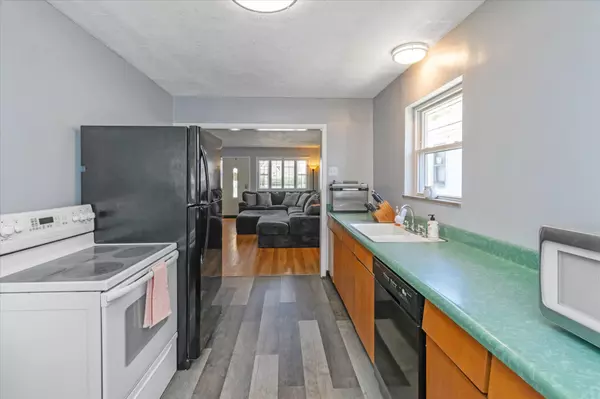
Are Home Warranties Worth It?
As a potential home buyer or seller, you may have come across the concept of home warranties. But what exactly are they, and are they worth the investment? In this article, we will dive into the world of home warranties and explore their benefits and drawbacks for both buyers and sellers. What is a home warranty? Home warranties are service contracts that provide coverage for the repair or replacement of major home systems and appliances due to normal wear and tear. They typically last for a specific period, usually one year, and can be renewed annually. Home warranties are designed to provide homeowners with peace of mind by offering financial protection against unexpected breakdowns. Home warranties cover normal wear and tear One of the significant advantages of home warranties is that they cover normal wear and tear that occurs over time. This means that if your refrigerator or HVAC system breaks down due to regular usage, the warranty will likely cover the repair or replacement costs. This coverage can save homeowners from having to bear the full burden of costly repairs or replacements, providing much-needed financial relief. Home warranty vs. home insurance It's important to understand that a home warranty is not the same as homeowner's insurance. While homeowner's insurance protects against perils like fire, theft, or natural disasters, a home warranty focuses on covering the repair or replacement of systems and appliances that break down due to regular use. In essence, home warranties provide an additional layer of protection beyond what insurance policies typically offer. They work together to give your new home holistic coverage. In short, home warranties covers what WILL happen, and home insurance covers what COULD happen. For buyers For homebuyers, a home warranty can be a valuable tool to offset potential repair costs after purchasing a property. When buyers move into a new home, they may not be aware of the condition of all the systems and appliances. Having a home warranty in place can provide a safety net, especially during the first year of homeownership when unexpected repairs are most common. Additionally, some buyers find the presence of a home warranty as an attractive feature when considering a property, as it conveys confidence in the condition of the home. For sellers Home warranties can also benefit sellers by helping them close deals with potential buyers. When selling a property, offering a home warranty can provide reassurance to buyers that they won't have to face significant repair costs immediately after purchasing the home. This added protection can make a property more appealing and increase the chances of a successful sale. Moreover, by including a home warranty as part of the listing, sellers can attract more potential buyers and potentially sell their property faster. Are home warranties worth it? Home warranties can be a worthwhile investment for both buyers and sellers. They offer coverage for normal wear and tear, providing financial protection against unexpected breakdowns. While they are not a substitute for homeowner's insurance, home warranties complement insurance policies by covering repair and replacement costs for systems and appliances. For buyers, a home warranty can provide peace of mind during the first year of homeownership, while for sellers, it can enhance the attractiveness of their property and help close deals with potential buyers. Ultimately, the decision to purchase a home warranty depends on your individual circumstances and preferences. Consider factors such as the age of your home, the condition of its systems and appliances, and your budget. If you're unsure, it's always a good idea to consult with your real estate agent or a trusted professional who can provide personalized advice based on your specific situation.
Categories
Recent Posts


